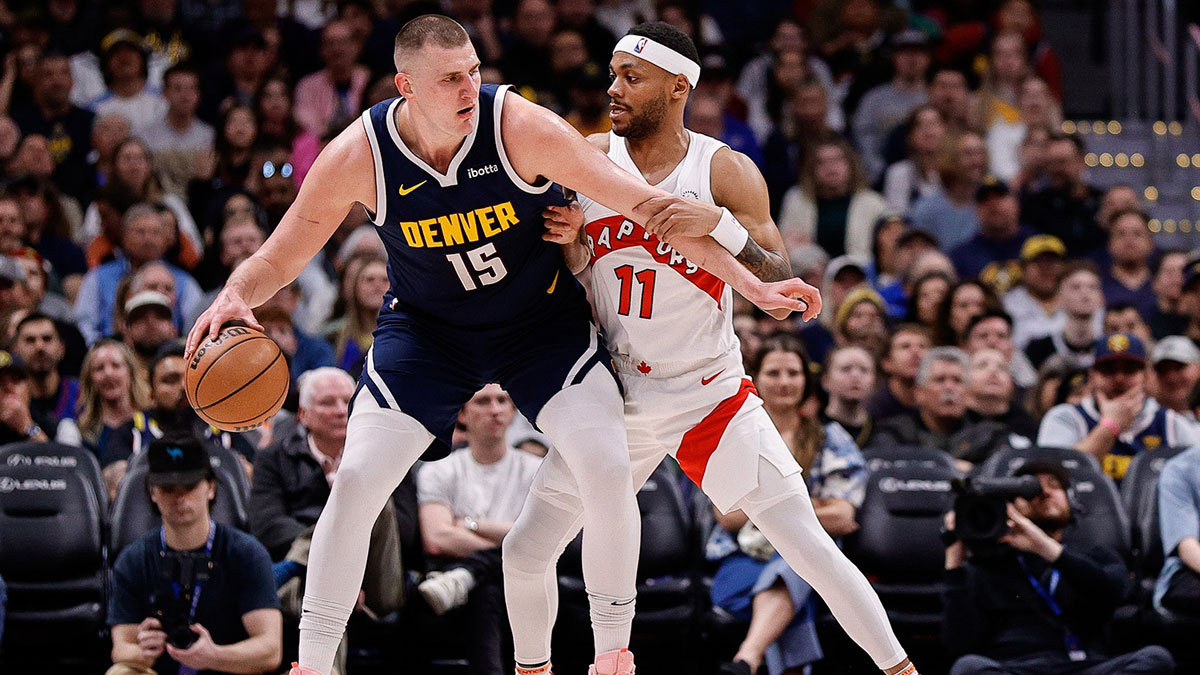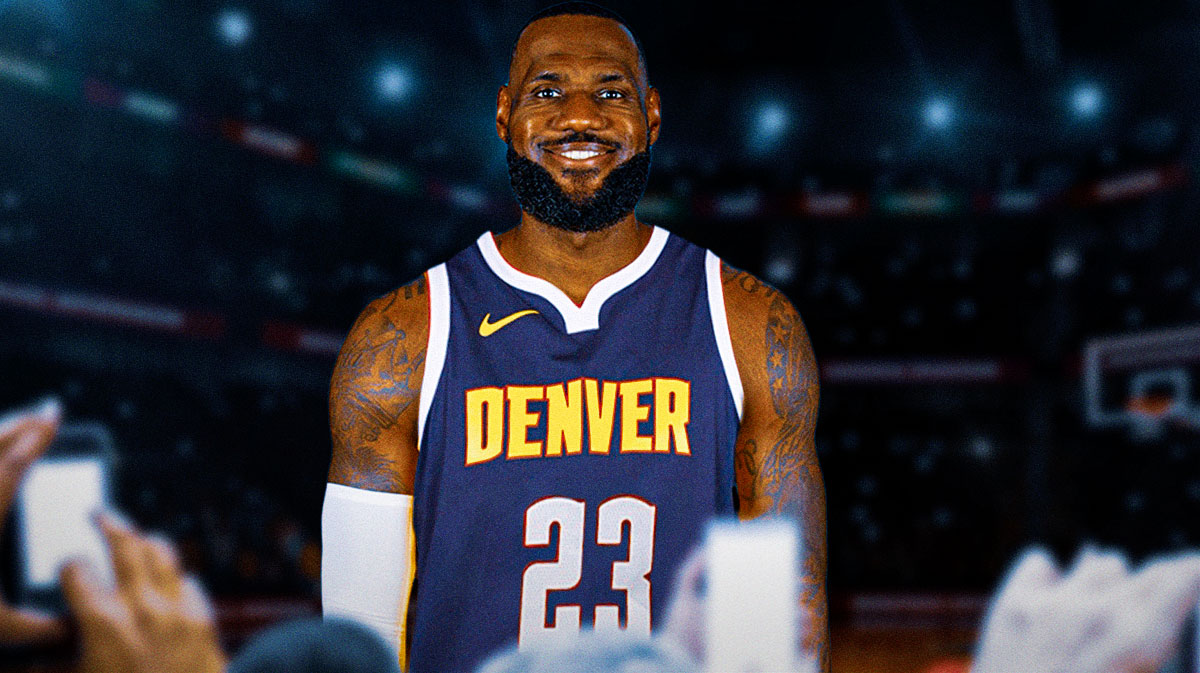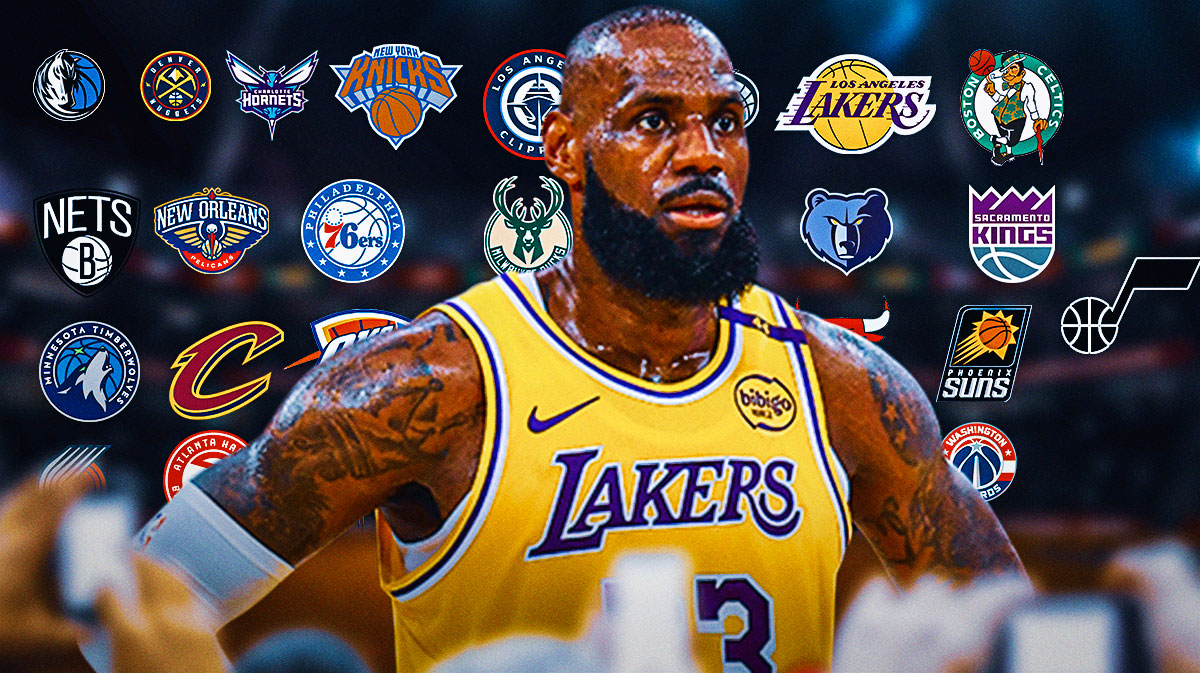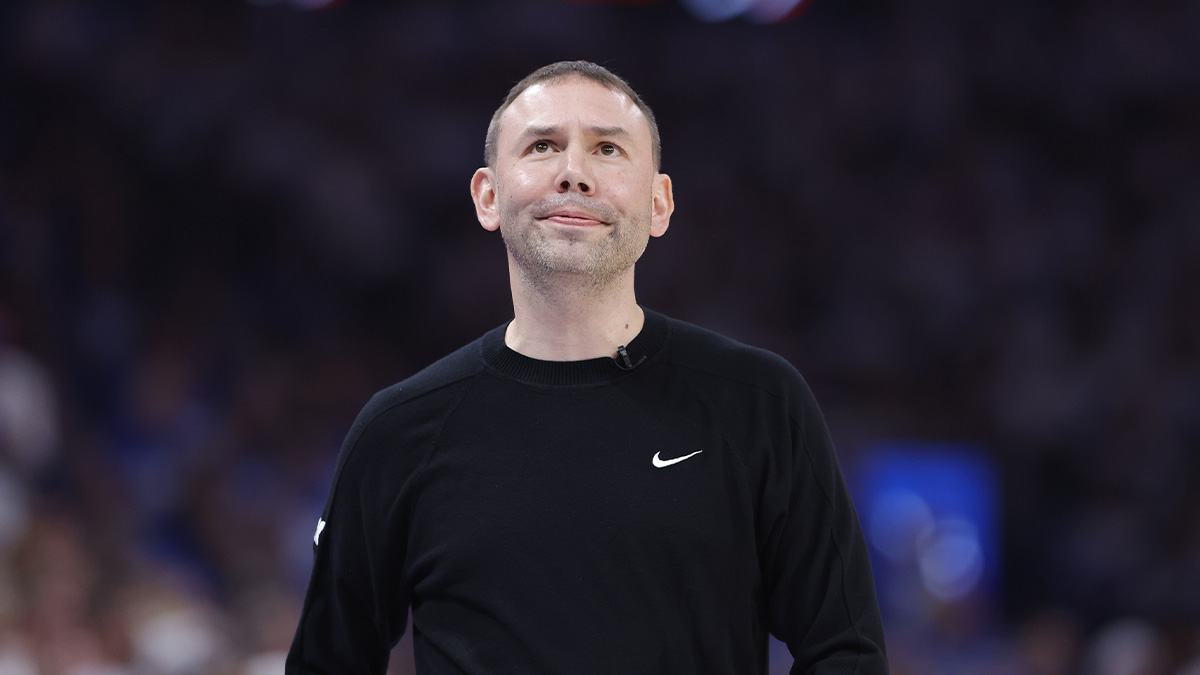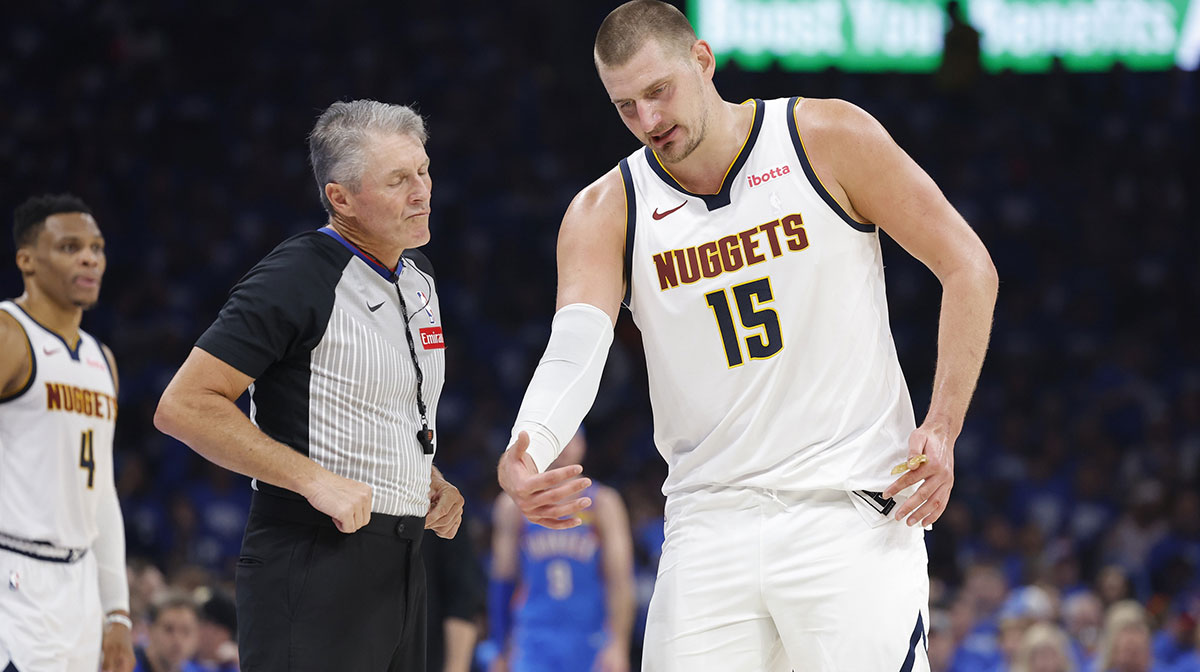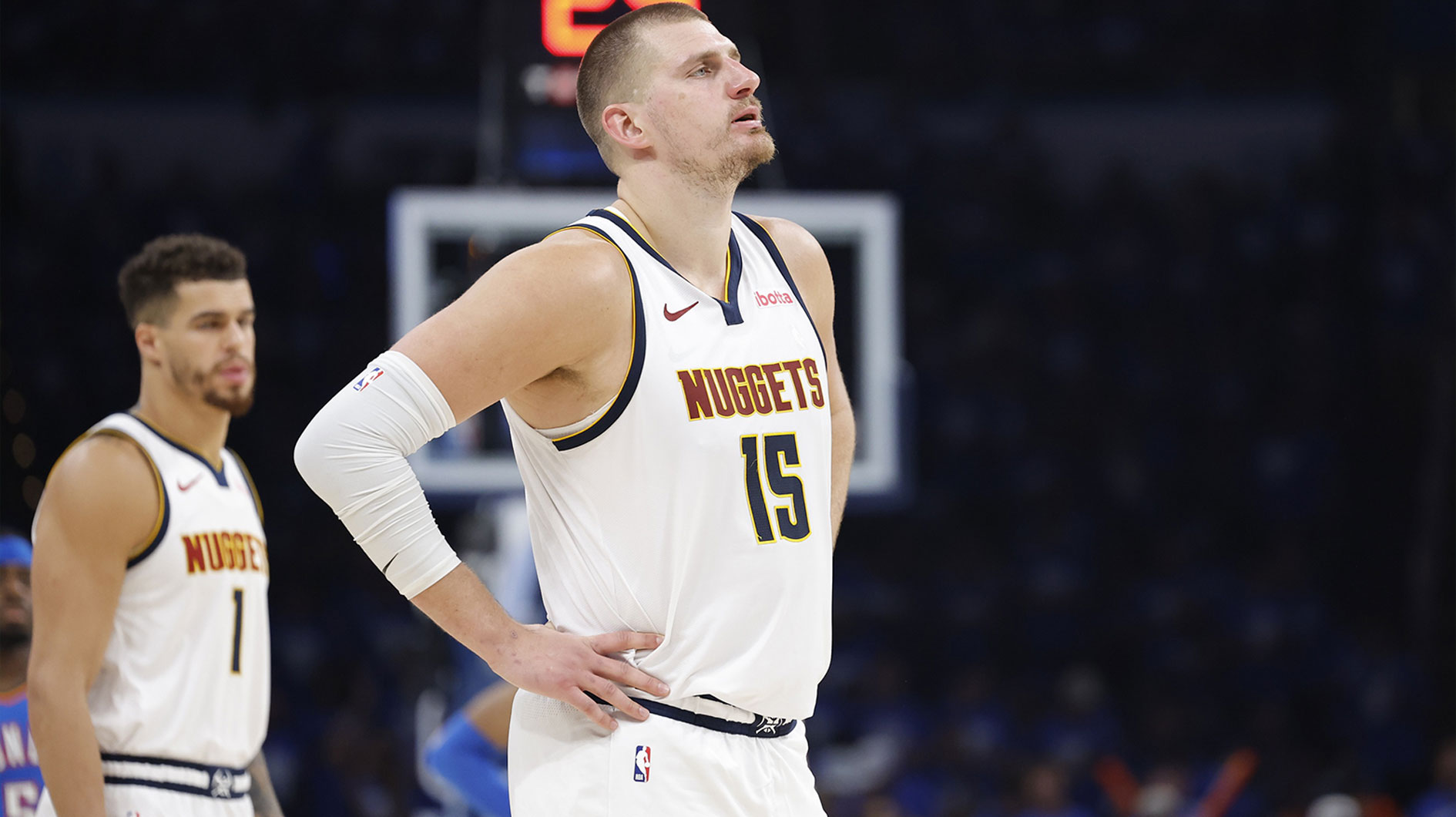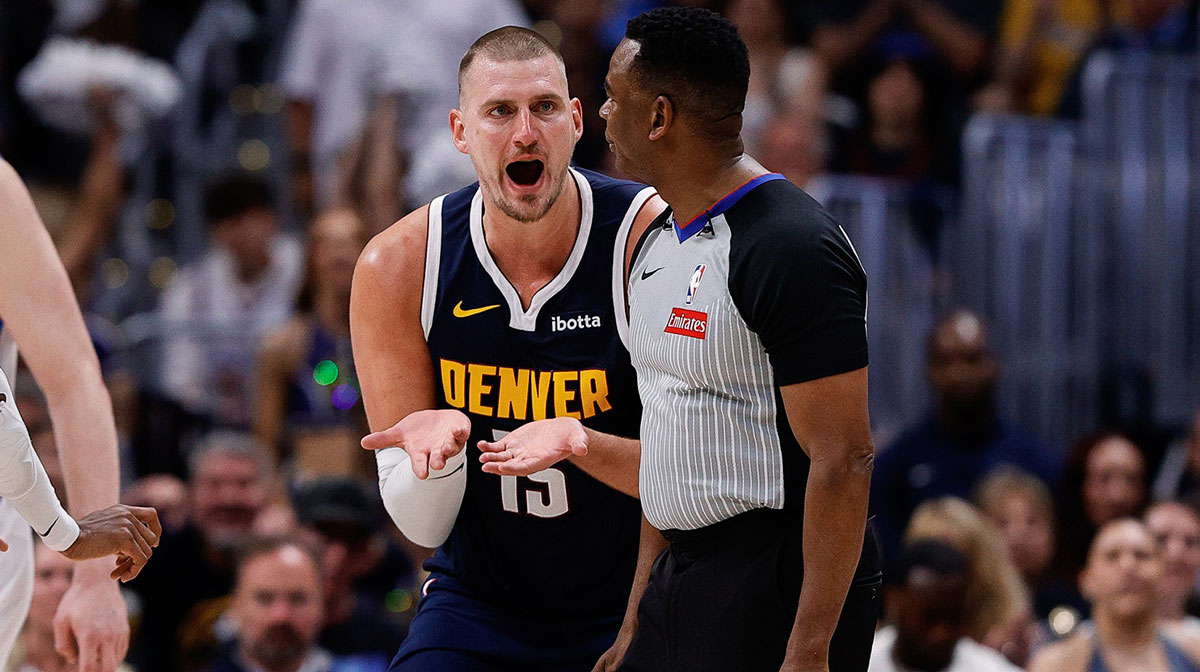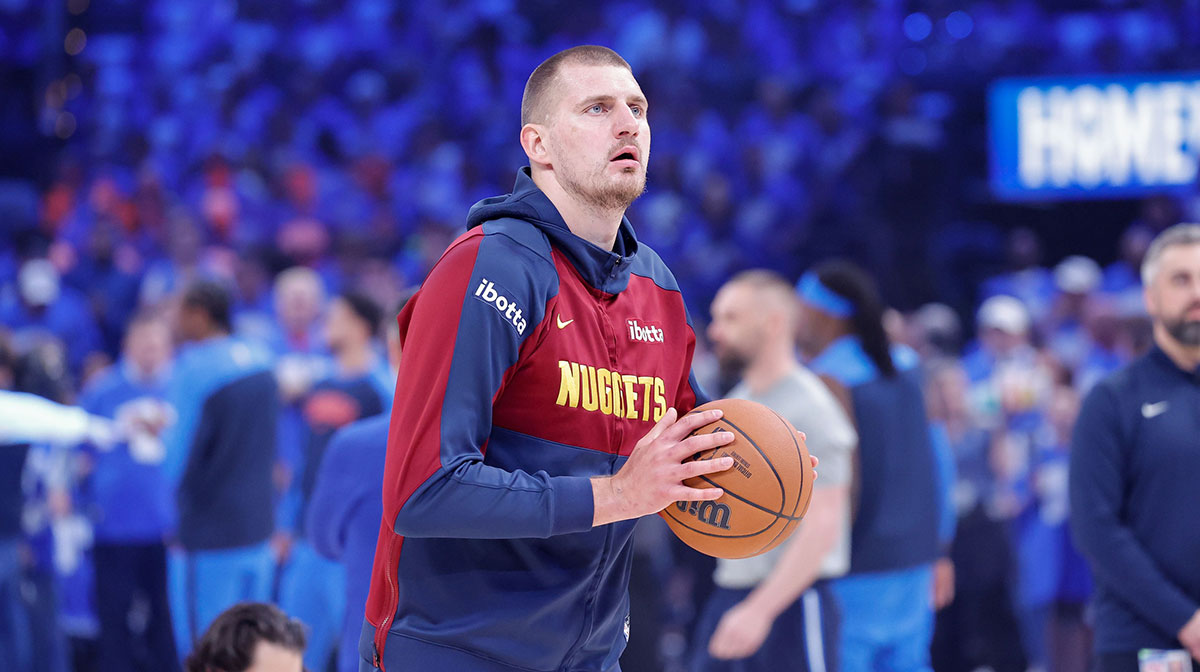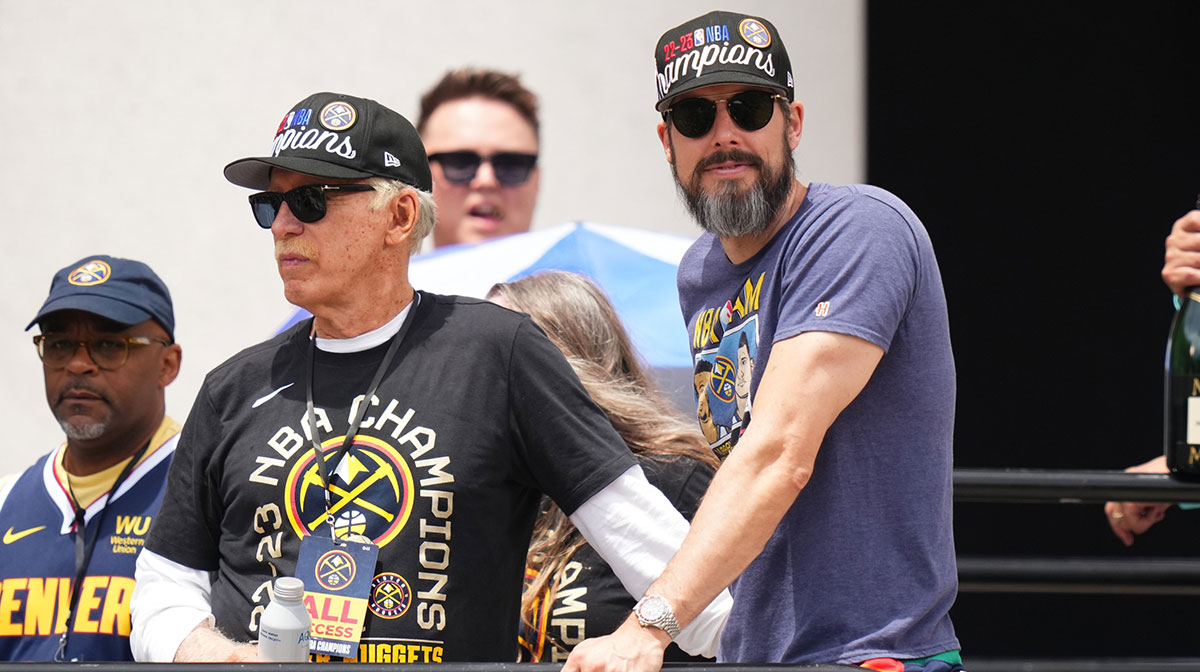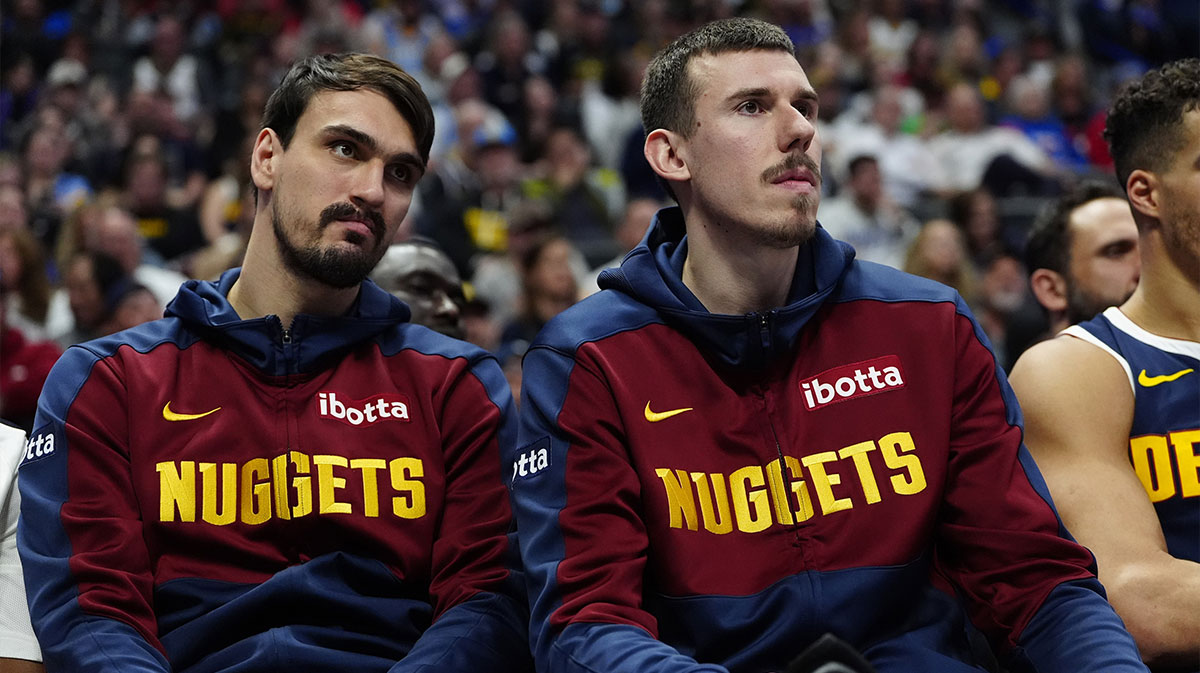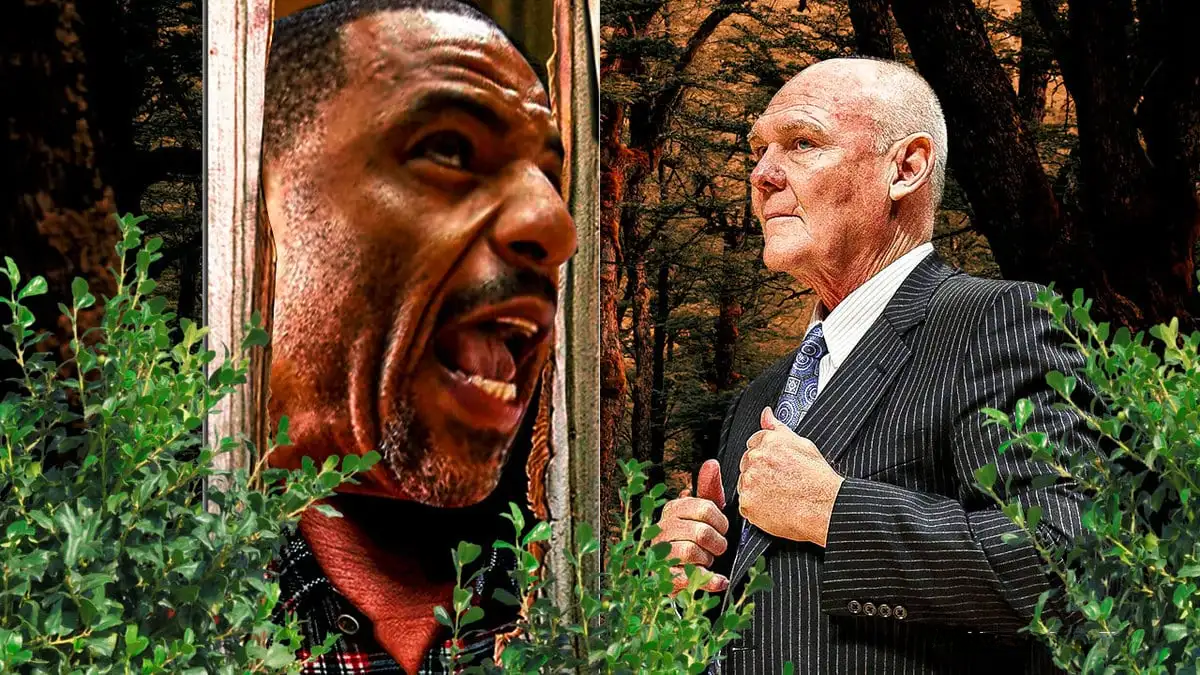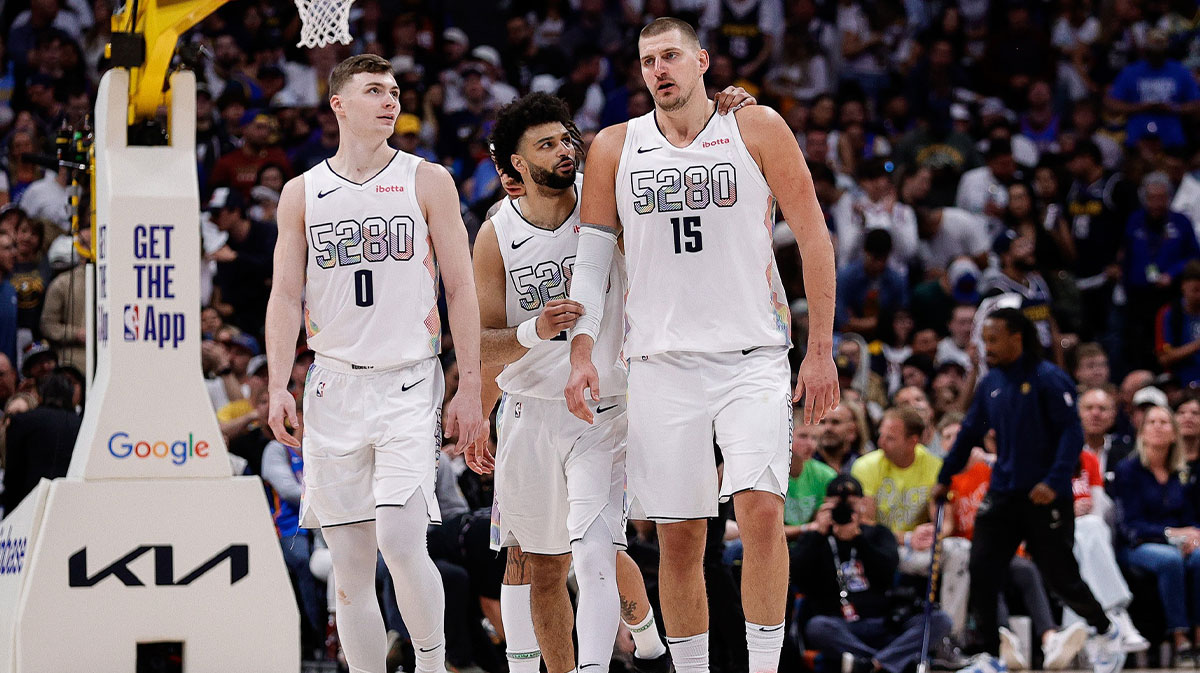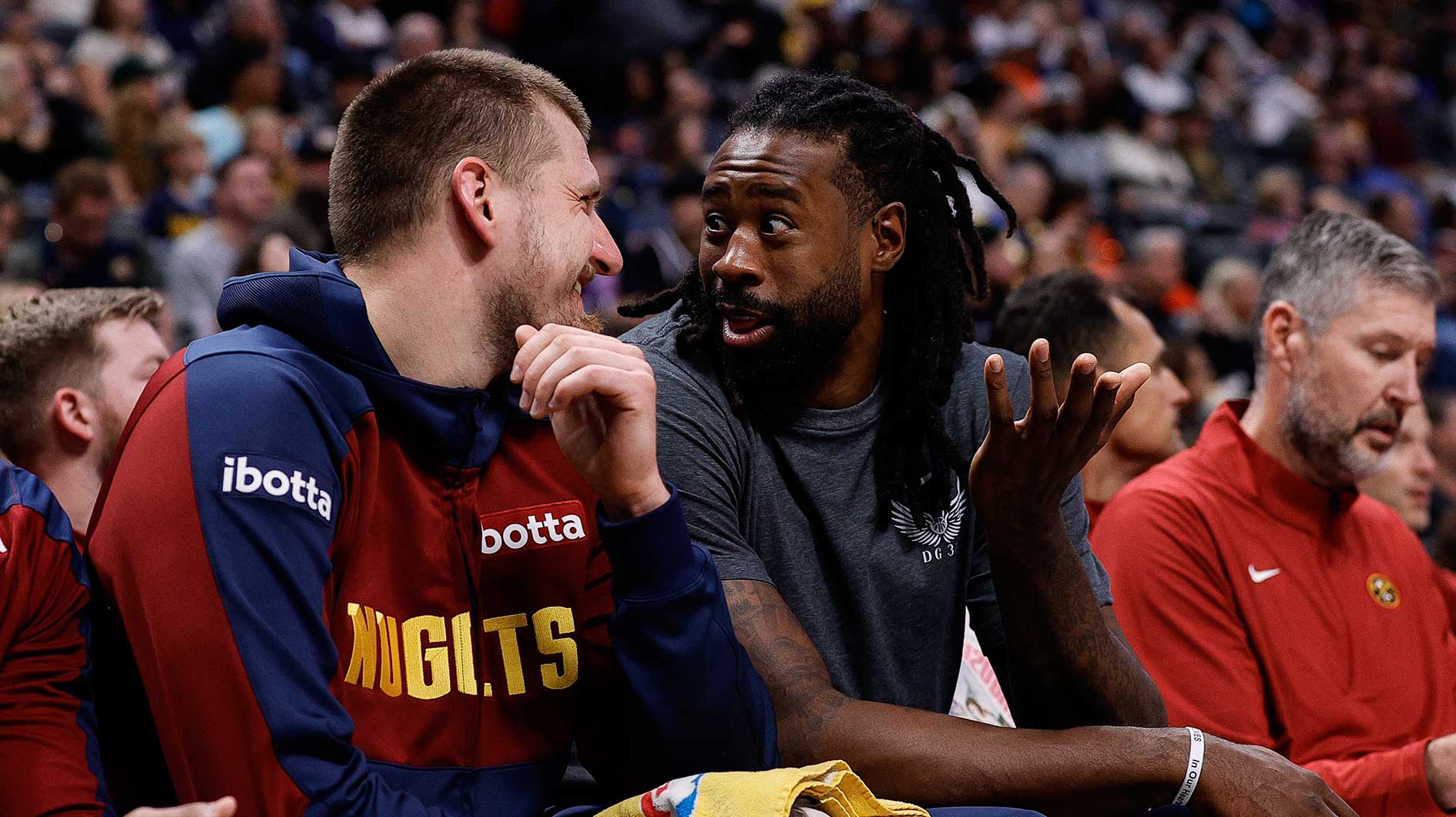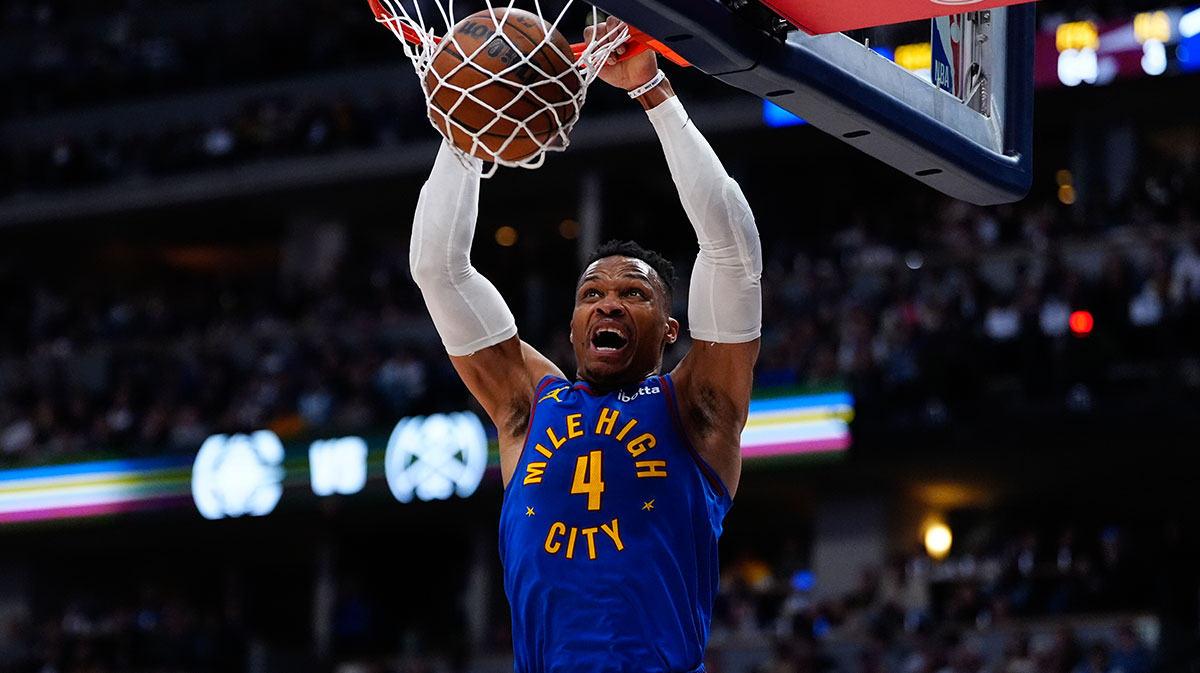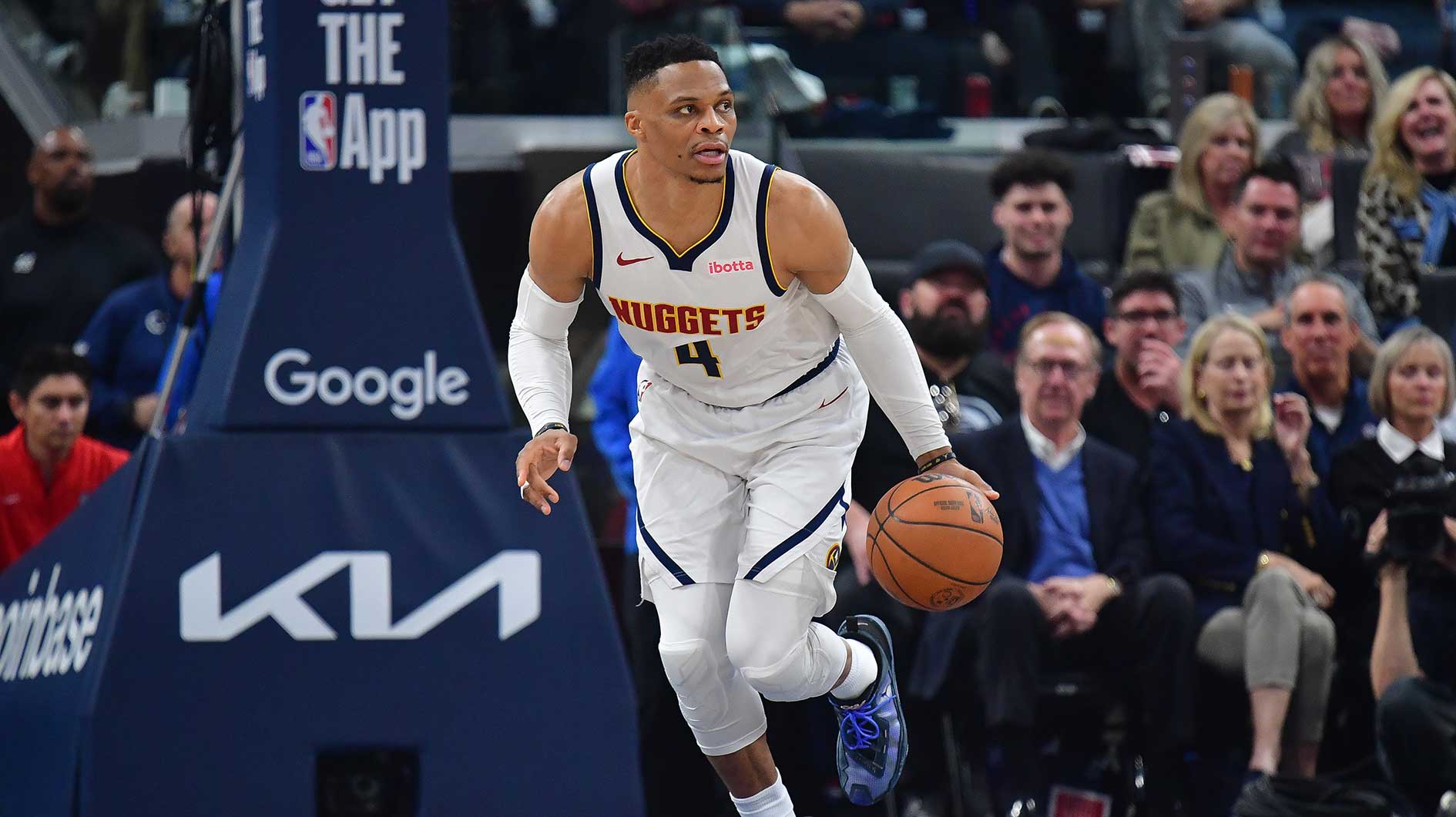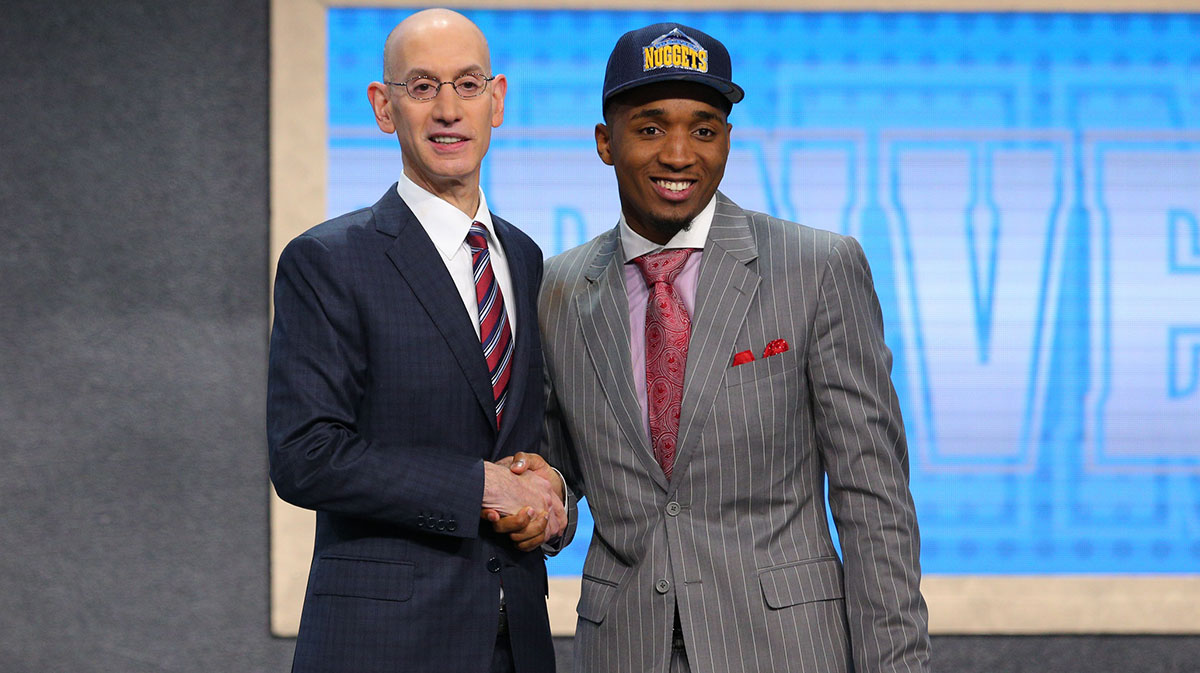- CLUTCH SUMMARY: Denver Nuggets guard Jamal Murray just signed a five-year, $170 million max extension.
- Murray has looked like a star at times, but playing with Nikola Jokic has artificially inflated his value.
- Murray has a lot of work to do to truly become a star and live up to his big contract.
Jamal Murray has always played like he was a star, and the Denver Nuggets are paying him like one. The rising fourth-year guard signed a five-year, $170 million max extension with the Nuggets last month, a deal including language that would allow him to be eligible for the so-called “Rose Rule” and earn as much as $203 million over the life of his new contract, which doesn't kick in until 2020-21.
It's extremely unlikely Murray will achieve the incentive needed to bump his contract past the $200 million threshold. Winning MVP or making First-Team All-NBA in 2019-20 are the only available vehicles behind that significant a bump; he'll receive smaller raises if he makes Second- or Third-Team All-NBA:
As part of the $169.7M rookie extension, Denver and Jamal Murray added 5th year 30% language: All-NBA First-Team or MVP (30%), All-NBA Second-Team (27.5%) and All-NBA Third-Team (26%). The All-NBA honors would need to be met in 2019-20 for year one (2020-21) to receive a bump.
— Bobby Marks (@BobbyMarks42) July 25, 2019
Clearly, those are lofty goals for a player who has yet to garner legitimate All-Star consideration. Whispers of Murray being worthy of an All-Star selection last season stemmed mostly from the Nuggets going into the break with the best record in the Western Conference. With the Golden State Warriors sending three players to Charlotte and the Oklahoma City Thunder two, didn't Denver also deserve multiple All-Stars?
The problem is that it has never been consistently clear that Murray, for all his moments of brilliance, is the second-biggest driver of the Nuggets' success behind Nikola Jokic. His on-court rating last season was plus-2.6, fourth on the team. But that number doesn't accurately portray his real impact on Denver as much as how the team plays when he's separated from Jokic. Murray and Jokic's on-court rating was plus-6.1, according to NBA.com/stats. When the reigning First-Team All-NBA center went to the bench with Murray still on the court, though, the Nuggets' net rating dipped down to plus-1.9.
There's a lot of dissonant noise behind those numbers. Denver's assist rate was unchanged with Murray on the floor and Jokic on the bench, for instance, and it actually turned the ball over less frequently in that scenario. At least a portion of the team's superior offense when Murray was paired with Jokic relates to offensive rebounding, an area in which the former has little import. But the main difference is Murray's individual effectiveness. His field goal percentage dipped from 44.7 percent to 40.6 percent without Jokic, while his 3-point percentage went from 38.2 percent to 33.1 percent, per NBA.com/stats.
The eye test affirms those numbers, of course. No tandem in the NBA has better two-man offensive chemistry than Murray and Jokic. They run both traditional and inverted pick-and-rolls, and have perfected the art of backdoor passes from Jokic to Murray over the top of sleeping defenders. Jokic found Murray for 2.0 assists per game last season, and a whopping 44 percent of the passes Murray received came from Jokic, according to NBA.com/stats.
It's undeniable at this point in his career that Murray is a more dependent player than both his burgeoning reputation and new contract suggest. Frankly, the presence of Jokic has artificially inflated Murray's value over the first three years of his career.
Still, what has transpired to this point is no surefire indication of where Murray's game goes from here. He took a major step forward as a playmaker last season, setting a career high in assist percentage while upping his usage and lowering his turnover rate – an especially important development considering he entered the league as a combo guard.
Murray's shot-making bona fides have never been in doubt, either. His instant-classic 21-point fourth quarter in Game 3 of the Nuggets' first-round series against the San Antonio Spurs provided a national audience with an eye-popping glimpse of that rare ability.
The overarching issue with Murray, though, is what came before it. He had just three points before the final stanza, missing all eight of his shot attempts and failing to impact the game in a meaningful manner. When Murray's shot isn't falling or Jokic isn't setting him up for easy looks, just what can Denver count on him to contribute? He's a minus defender with only limited room to grow. His free-throw rate fell after an encouraging uptick in 2017-18, and he shot 43.2 percent on 4.9 drives per game last season, per NBA.com/stats – both subpar numbers for a lead playmaker.
The Nuggets didn't have much of a choice in giving Murray the max. Teams routinely overpay to retain incumbents, and Denver clearly didn't want to risk eroding its culture and chemistry by letting one of its most important players hitting restricted free agency. He very likely would have received multiple max-level offers next summer, too.
But Murray clearly isn't worthy of his new contract quite yet, and there's reason to believe he won't be going forward, either.

